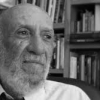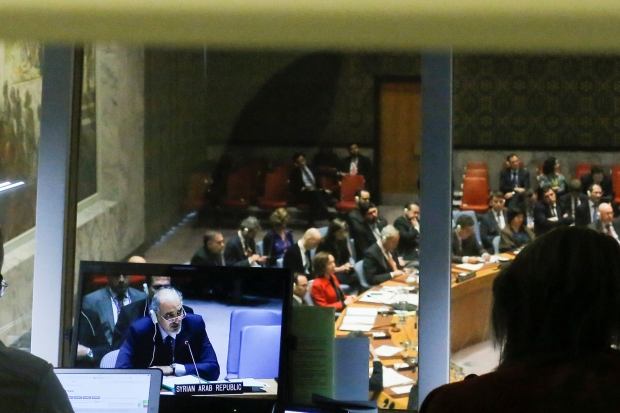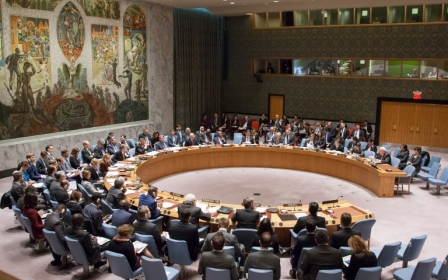Despite its epic failures, the world still needs the UN

During the Cold War, the UN disappointed even its most ardent followers because it seemed paralysed by the rivalry between East and West whenever a political crisis threatened world peace.
Giving the veto power to the five permanent members of the Security Council almost assured that when ideological and geopolitical views clashed, the UN would watch the unfolding events from the sidelines.
A western-led alliance
Then the Cold War ended, and the UN seemed to function for a short while as a Western-led alliance, dramatised by the Security Council support for the First Iraq War that restored Kuwaiti sovereignty in 1992 after Iraq's aggression the prior year.
It is not surprising that the UN is currently belittled and widely seen as irrelevant to the challenges facing the world
Such a use of the UN was hailed at the time by the US government as "the new world order" making use of the Security Council at last possible as a result of the Soviet collapse. Yet this image of geopolitical potency for the UN was soon criticised as "hegemonic" and began to be questioned by Russia and China.
The misleading plea at the Security Council in 2011 for a strictly limited humanitarian intervention under the auspices of NATO to protect the people of Benghazi from an onslaught was used as the pretext to achieve regime change in Libya by an all-out military attack.
It succeeded in ridding the country of its ruler for four decades Muammar Qaddafi, replacing his brutal dictatorship with the promise of instituting a democratic political order. Instead of order, what NATO brought to Libya was prolonged chaos and strife, and by acting far beyond its Security Council mandate, the West paid a heavy price, and the UN an even heavier one.
The Libyan deception undermined the trust of Russia and China in the good faith of the West, incapacitating the UN in future crisis situations, most notably Syria, and also Yemen.
Making a mockery of UN
Arguably, the tragic ordeal of Syria epitomises the inability of the UN to uphold even the most minimal interests of humanity, saving civilians from deliberate slaughter and atrocity.
Even when a ceasefire is belatedly agreed upon, it is utterly ignored, making a mockery of UN authority, and leaving the spectacle of such inhumane warfare to go on and on without the will or capacity of the UN to do anything about it.
For this reason, it is not surprising that the UN is currently belittled and widely seen as irrelevant to the challenges facing the world, whether in combat zones, climate change, or threats of nuclear conflagration.
.
The tragic ordeal of Syria epitomises the inability of the UN to uphold even the most minimal interests of humanity, saving civilians from deliberate slaughter and atrocity
The UN, despite failing badly in the context of war/peace, has reinvented itself to provide a variety of vital services to the world community, and retains the potential to do more. However in the end the UN role and its contributions are dependent upon the political will of its five permanent members, the so-called P-5.
The idealist vs the realist
Since its foundation, there have been four main attitudes toward the UN. When considered together these four viewpoints help explain why assessing the UN's achievements remains controversial even after more than 70 years of existence.
The fact that it is still there, and that every sovereign state, without exception, values the benefits of membership, should tell us something.
These four attitudes overlap, yet each captures an aspect of the overall UN reality.
First, there are the idealists who want to believe the stirring pledge of the Preamble to the UN Charter: "to save succeeding generations from the scourge of war".
The UN offers world leaders a talking shop in a complex world and discussion can sometimes be helpful in swaying international public opinion in the direction being advocated by a government
Such persons believe that a new era of law-based global security had been launched when the UN was established in 1945, that the organisation would be ready and able to prevent the recurrence of major war as even governments had become scared of future warfare in light of the atomic attacks on Hiroshima and Nagasaki.
These idealists, although disappointed over the years, continue to hope that at some point, the leaders of the big states would strengthen the capabilities of the UN so that it could fulfil this original lofty aspiration of securing a peaceful world and standing ready to meet global challenges as they arise.
Then there are the realists who dominate governments and think tanks, and were worried in the immediate aftermath of World War II that the idealists would lead the world astray by raising expectations of great power restraint beyond reason and the lessons of history.
The realists believe that international history was, and always will be, a narrative of power and powerlessness, with war, war-making, and coercive diplomacy a permanent part of the global setting regardless of changes in technology and global power balances.
Realists adopt an essentially instrumental and marginalising view of the UN, in effect believing that major political action on security and economic matters will always be shaped in venues under the discretionary control of sovereign states.
The cynics vs the opponents
A third set of attitudes is that of cynics who regard the UN as a hypocritical and deliberate distraction from serious problem-solving. The UN has neither the power nor authority to take action to keep the peace except in the rare instances when major players agree on what to do.
In effect, the UN was always irrelevant and worthless from the perspective of shaping a peaceful and just world, and to believe otherwise is to be naïve about the workings of world politics.
From this cynical perspective, the UN is a wasteful and misleading public relations stunt that diverts energy from the kind of radical political action that would be needed to make the world secure and just.
The cynics regard the UN as a hypocritical and deliberate distraction from serious problem-solving. The UN has neither power nor authority to take action to keep the peace except in the rare instances when major players agree on what to do
Finally, there are the opponents, who oppose the whole idea of the UN as a world organisation, and fear that it poses a threat to the primacy of national sovereignty. Opponents are hostile to the UN, often susceptible to conspiracy theories warning that there are social forces plotting to turn the UN into a world government, which they consider a prelude to global tyranny.
The paranoia of the opponents is the furthest removed from reality among these four viewpoints, but remains influential in shaping populist attitudes toward the UN in the present era where democratic forms of governance are giving way to a variety of autocracies that have in common a refusal to meet global challenges by reliance on the UN.
Trump's "America First" chant is emblematic of this outlook, which is putting new funding and a variety of political pressures on the UN to serve the national interests of its leading members. It is illustrative of this atmosphere that the UN is being attacked as an Israel-bashing organisation rather than being criticised for its failure to respond to well-grounded Palestinian grievances.
A site of struggle
If we ask who has gotten the better of the implicit argument between these four ways of perceiving the UN, it is hard to avoid giving the prize to the realists. In a way this is not surprising.
As realists dominate all public and private institutions, their dominant tendency is to treat the UN as a site of struggle that can be useful to mobilise support for a controversial policy - for instance, sanctions against North Korea or Iran.
The realists are able to impose their view of the UN role on the operations of the organisation, but at the same time, realists are at a loss as to the nature of "the real", and thus ignore the need for a stronger UN to address global challenges, including climate change, nuclear crises, humanitarian catastrophes, and natural disasters.
In contrast, the cynics want to pierce illusions, not only of the idealists, but also of the realists, especially when the latter's voices seek to cloak power moves in the sweeter language of human rights and democracy.
Idealists also struggle to gain relevance by claiming that their views are more realistic than those of the realists, pointing to the looming urgencies of nuclear war and climate change. And, of course, opponents see these differences about the UN role as a dangerous smokescreen hiding the never-ending plot to hijack the UN to establish a world government.
The UN story
These perspectives, while illuminating general attitudes, are too crude to tell the whole story of what the UN can and cannot accomplish.
First of all, there is the question of organisational complexity. The UN is composed of many institutions with very different agendas and budgets, many of which are either technical or removed from the scrutiny of diplomats and experts.
Most people when they think of the UN are mainly concerned with what the Security Council does with respect to the main war/peace issues of the day, maybe a bit attentive to action taken by the General Assembly, and sometimes responsive to what the UN secretary general says or does.
There is only interest, for instance, in the Human Rights Council in Geneva when it reinforces or thwarts some kind of foreign policy consensus of big powers or issues a report critical of Israel.
If we seek a stronger more effective UN, the path is clear. Make the Organisation more detached from geopolitics, abolish the veto, establish independent funding by a global tax, and elect a Secretary General without P-5 vetting
In the early 1970s countries from the Global South wanted to reform trade and investment patterns, mounting a campaign in the General Assembly, which led them to be slapped down by the West that wanted above all to insulate the operations of the world economy from any reforms that would diminish their advantageous positions.
An indispensable soft power actor
The UN is exceedingly valuable, especially for poorer countries, as a source of information and guidance on crucial matters of health, food policy, environment, human rights, and the preservation of cultural heritage.
Its specialised agencies provide reliable policy guidance and offer governments help in promoting economic development, and set clarifying targets for the world in the form of Sustainable Development Goals. In effect, the UN quietly performs a wide array of service functions that enable governments to pursue their national policies in a more effective and humane manner.
Even more significantly, the UN has more authority than any political actor in determining whether certain claims by states or peoples are legitimate or not. UN's responses to the legitimacy of a national struggle is an important expression of soft power that often contributes to shaping the political outcome of conflicts.
In effect, the UN is influential in the waging of legitimacy wars that are fought on the symbolic battlefields of such principal UN organs as the Security Council and General Assembly.
Contrary to what realists profess, most international conflicts since 1945 have been resolved in favour of the side that prevails in a legitimacy war rather than the winner of hard power struggles on the battlefield.
The UN played a crucial role in supporting the anti-colonial and anti-apartheid struggles. Despite its shortcomings in directly upholding peace and justice, the UN is on balance a vital force with respect to conflict and peacekeeping.
The UN has been disappointing in implementing its charter in relation to the P-5, and has not overcome the double standards that apply to upholding international law. The weak are held accountable, while the strong enjoy impunity.
Nevertheless, the UN is indispensable as a soft power actor that helps the weaker side prevail in legitimacy wars. The UN seems helpless to stop the carnage in Syria or Yemen yet it can identify wrongdoing and mobilise public opinion on behalf of the victims. We can hope for more, but we should not overlook, or fail to appreciate, the abundant positive accomplishments of the UN.
If we seek a stronger more effective UN, the path is clear. Make the organisation more detached from geopolitics, abolish the veto, establish independent funding by a global tax, and elect a secretary general without P-5 vetting.
- Richard Falk is an international law and international relations scholar who taught at Princeton University for 40 years. In 2008 he was also appointed by the UN to serve a six-year term as the special rapporteur on Palestinian human rights.
The views expressed in this article belong to the author and do not necessarily reflect the editorial policy of Middle East Eye.
Photo: UN Secretary-General Antonio Guterres speaks next to US billionaire Michael Bloomberg as he is appointed special envoy for Climate Action by the UN scretary-general at the United Nations headquarters on 5 March 2018 in New York (AFP)
Middle East Eye propose une couverture et une analyse indépendantes et incomparables du Moyen-Orient, de l’Afrique du Nord et d’autres régions du monde. Pour en savoir plus sur la reprise de ce contenu et les frais qui s’appliquent, veuillez remplir ce formulaire [en anglais]. Pour en savoir plus sur MEE, cliquez ici [en anglais].








